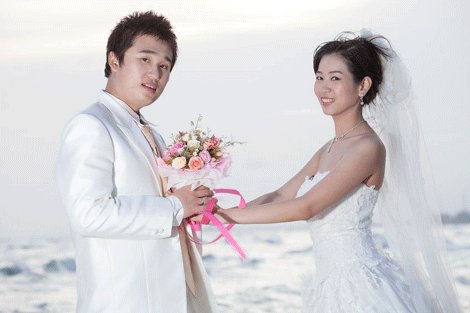Korean attitudes to marriage changing: think tank
이 글자크기로 변경됩니다.
(예시) 가장 빠른 뉴스가 있고 다양한 정보, 쌍방향 소통이 숨쉬는 다음뉴스를 만나보세요. 다음뉴스는 국내외 주요이슈와 실시간 속보, 문화생활 및 다양한 분야의 뉴스를 입체적으로 전달하고 있습니다.
The use of Korean word “bihon” -- referring to people who choose to remain unmarried -- has increased sevenfold on social media over the past five years, reflecting the people’s changing attitude toward marriage, said a private think tank Monday.

According to big data analyst company Daumsoft, its research on 700 million blog posts and 8.9 billion tweets by Koreans on the topic of marriage between Jan. 1, 2011, and April 20, 2016, showed an abrupt surge in the use of the word beginning from 2015.
While in the four years between 2011 and 2014 the volume remained around 2,500 to 3,000, in 2015 it suddenly rocketed to 13,037 and escalated to 19,730 in the first four months of 2016.
Bihon, a neologism that signifies a person’s choice to remain unmarried, is often contrasted with a similar sounding word “mihon,” which merely states that a person is single without indicating his or her intentions.
Daumsoft said that Koreans are increasingly viewing marriage as an option and not a requirement in life, amid the economic slump and rising unemployment rate.
Along with the rise of “bihon,” words with negative connotations such as “stress” tripled in online conversations in 2015 compared to four years ago. Other such words were “economic burden,” “practicality” and “realistic.”
Neologism such as “wedding-poor,” referring to people who feel financially pinched after spending a staggering sum of money on their wedding ceremony also rose in use.
By Lim Jeong-yeo (kaylalim@heraldcorp.com)
<ⓒKoreaHerald(www.koreaherald.com)무단전재 및 재배포 금지>
Copyright © 코리아헤럴드. 무단전재 및 재배포 금지.